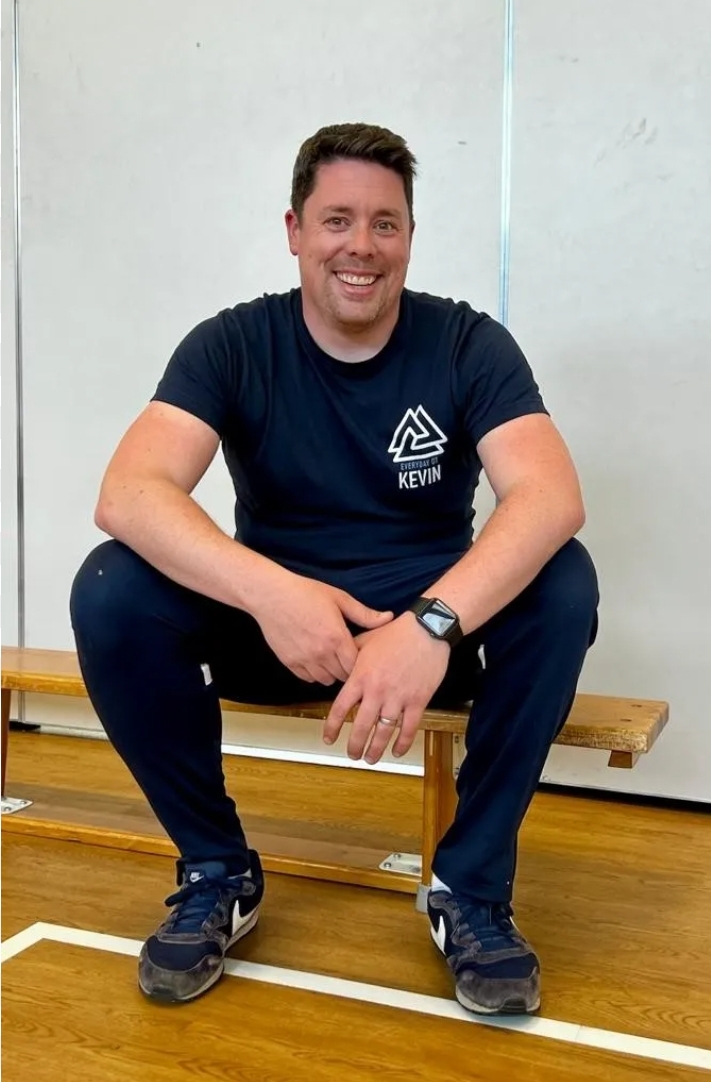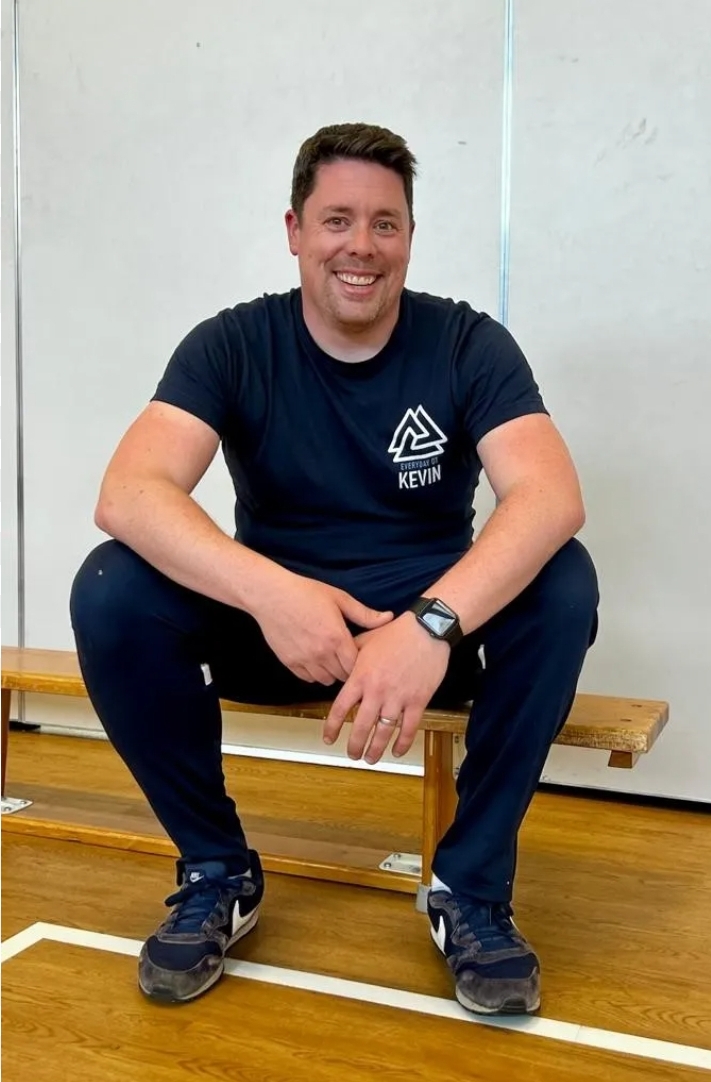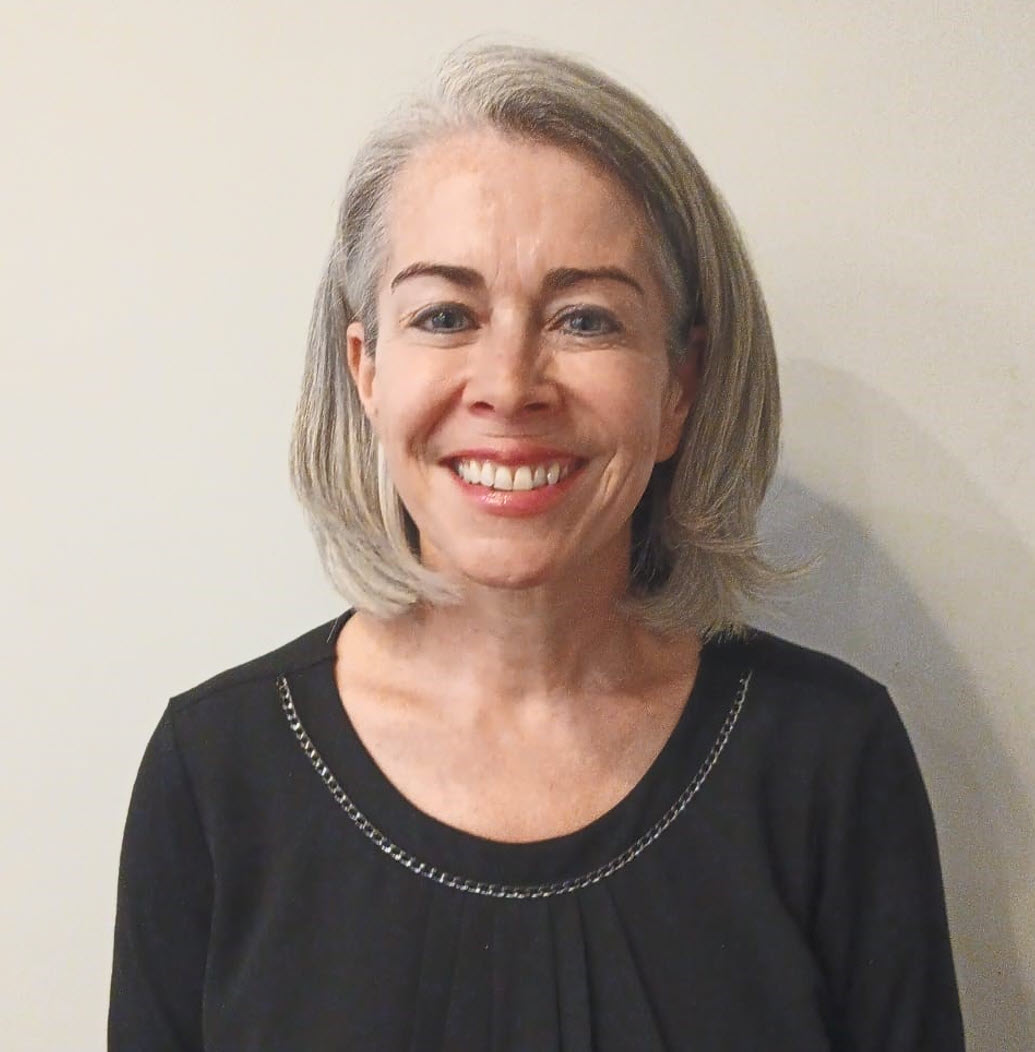Punished by Rewards?
 Children struggling with anxiety can find the school environment overwhelming—and as an SNA, you play a vital role in offering the support they need to feel safe, understood, and ready to learn. But knowing how to help can feel challenging.
Children struggling with anxiety can find the school environment overwhelming—and as an SNA, you play a vital role in offering the support they need to feel safe, understood, and ready to learn. But knowing how to help can feel challenging.
This practical, easy-to-follow course gives you six essential tools to confidently support anxious children in the classroom. You’ll gain a clear understanding of anxiety—how it presents, why it happens, and what works to help children feel more secure and regulated.
Through simple, effective strategies, you’ll learn how to:
- Understand anxiety through the lens of developmental and brain science.
- Recognise signs and triggers of anxiety and how to respond with confidence
- Create a calm, supportive environment that helps children feel safe
- Use six practical tools to help anxious children thrive in the school setting
By the end of this course, you’ll walk away feeling empowered, prepared, and equipped with actionable techniques that make a real difference in a child’s day.
This course is designed specifically for SNAs working in primary schools—so whether you're new to the role or looking to expand your toolkit, these six steps will give you the confidence and skills to support children with anxiety effectively.
Supporting girls with ADHD
 Children struggling with anxiety can find the school environment overwhelming—and as an SNA, you play a vital role in offering the support they need to feel safe, understood, and ready to learn. But knowing how to help can feel challenging.
Children struggling with anxiety can find the school environment overwhelming—and as an SNA, you play a vital role in offering the support they need to feel safe, understood, and ready to learn. But knowing how to help can feel challenging.
This practical, easy-to-follow course gives you six essential tools to confidently support anxious children in the classroom. You’ll gain a clear understanding of anxiety—how it presents, why it happens, and what works to help children feel more secure and regulated.
Through simple, effective strategies, you’ll learn how to:
- Understand anxiety through the lens of developmental and brain science.
- Recognise signs and triggers of anxiety and how to respond with confidence
- Create a calm, supportive environment that helps children feel safe
- Use six practical tools to help anxious children thrive in the school setting
By the end of this course, you’ll walk away feeling empowered, prepared, and equipped with actionable techniques that make a real difference in a child’s day.
This course is designed specifically for SNAs working in primary schools—so whether you're new to the role or looking to expand your toolkit, these six steps will give you the confidence and skills to support children with anxiety effectively.
Introduction to ADHD
 This short course provides a basic introduction for SNAs/ANAs working with students with ADHD. It aims to help SNAs/ANAs build the knowledge, confidence, and strategies to support these students.
This short course provides a basic introduction for SNAs/ANAs working with students with ADHD. It aims to help SNAs/ANAs build the knowledge, confidence, and strategies to support these students.
Participants will explore what ADHD is, and what it is not, addressing common misconceptions and gaining a clearer understanding of how ADHD can impact learning, behaviour, and relationships in school.
The course highlights the challenges students may experience. It also encourages participants to support their students using a strengths-based approach, acknowledging their strengths and seeing the whole learner.
Grounded in the NCSE Relate Framework, the course emphasises building strong relationships, adopting a neuro-affirmative viewpoint, and discovering practical strategies to use in school. SNAs/ANAs will leave with an improved understanding of ADHD, as well as some practical tools to foster inclusion, support student wellbeing, and encourage learners with ADHD in their school.
The SNA Anger Toolkit
 Anger is a big emotion, and the outbursts it can trigger are often stressful and challenging to manage in a school environment.As an SNA, you play a crucial role in helping children navigate their emotions - but knowing how to respond effectively, without escalating the situation, can be tough.
Anger is a big emotion, and the outbursts it can trigger are often stressful and challenging to manage in a school environment.As an SNA, you play a crucial role in helping children navigate their emotions - but knowing how to respond effectively, without escalating the situation, can be tough.
The SNA Anxiety Toolkit
 Children struggling with anxiety can find the school environment overwhelming—and as an SNA, you play a vital role in offering the support they need to feel safe, understood, and ready to learn. But knowing how to help can feel challenging.
Children struggling with anxiety can find the school environment overwhelming—and as an SNA, you play a vital role in offering the support they need to feel safe, understood, and ready to learn. But knowing how to help can feel challenging.
This practical, easy-to-follow course gives you six essential tools to confidently support anxious children in the classroom. You’ll gain a clear understanding of anxiety—how it presents, why it happens, and what works to help children feel more secure and regulated.
Through simple, effective strategies, you’ll learn how to:
- Understand anxiety through the lens of developmental and brain science.
- Recognise signs and triggers of anxiety and how to respond with confidence
- Create a calm, supportive environment that helps children feel safe
- Use six practical tools to help anxious children thrive in the school setting
By the end of this course, you’ll walk away feeling empowered, prepared, and equipped with actionable techniques that make a real difference in a child’s day.
This course is designed specifically for SNAs working in primary schools—so whether you're new to the role or looking to expand your toolkit, these six steps will give you the confidence and skills to support children with anxiety effectively.
Dyslexia at Senior Primary & Post Primary
 Discover comprehensive insights into Dyslexia to empower you to provide better support for the children in your school.
Discover comprehensive insights into Dyslexia to empower you to provide better support for the children in your school.
-
Understand exactly what Dyslexia is.
-
Understand how Dyslexia can affect students at second level.
-
Discover practical strategies and resources to help deal with organisation, reading, spelling and vocabulary, writing, memory learning, notetaking and self esteem.
Curriculum Options for Junior Cycle (Post Primary)
 This course will be based around the L1LP (Level 1 Learning Program) and the L2LP (Level 2 Learning Program). Modules will be video based and accompanied by resources, links, tips and guidance to create a positive learning experience for you and the students you will be working with!
This course will be based around the L1LP (Level 1 Learning Program) and the L2LP (Level 2 Learning Program). Modules will be video based and accompanied by resources, links, tips and guidance to create a positive learning experience for you and the students you will be working with!
Supporting Students with EAL in Post Primary
 As an SNA you can find yourself working with children who are attending EAL classes. Learn how you can best support these children as they learn to speak a new language.
As an SNA you can find yourself working with children who are attending EAL classes. Learn how you can best support these children as they learn to speak a new language.
Understanding Sensory Processing & Sensory Play
 This engaging and practical course is designed for Special Needs Assistants (SNAs) who want to deepen their understanding of sensory processing and the role of sensory play in supporting children with additional needs.
This engaging and practical course is designed for Special Needs Assistants (SNAs) who want to deepen their understanding of sensory processing and the role of sensory play in supporting children with additional needs.
Participants will explore how sensory processing impacts learning and behaviour, learn to identify sensory sensitivities and needs, and discover strategies to create inclusive, sensory-friendly environments.
SNAs will learn about the eight sensory systems of the body and will gain confidence in using sensory play to enhance regulation, engagement, and development in the children they support.
Supporting a Student with Toileting & Enuresis
 Supporting students with toileting and enuresis (incontinence challenges) in the school setting requires a developmentally informed, holistic approach. This course is designed for SNAs to provide practical strategies that promote independence, dignity, and confidence in managing toileting.
Supporting students with toileting and enuresis (incontinence challenges) in the school setting requires a developmentally informed, holistic approach. This course is designed for SNAs to provide practical strategies that promote independence, dignity, and confidence in managing toileting.
Children experiencing toileting challenges or enuresis (incontinence) challenges may face physical, sensory or emotional challenges that impact their daily school life. This course explores the root causes of toileting challenges, including sensory processing, motor skills, routines, and emotional regulation, while equipping SNAs with practical, respectful, and effective support strategies.
Learning outcomes:
- Understand the developmental factors influencing toileting and enuresis incontinence in children.
- Support students in developing independence with toileting routines and self-care skills.
- Identify and manage sensory, physical, and emotional challenges related to toileting.
- Implement discreet and supportive strategies to promote confidence and dignity.
- Reflect on and adapt support strategies to meet individual student needs
Supporting Dyslexic Students in Primary School
 Supporting a child with Dyslexia in the primary school setting requires understanding, patience, and effective strategies. This course is designed specifically for SNAs in mind by providing clear, no-nonsense information about Dyslexia—what it is, how it affects children, and the impact it can have on learning. With a practical approach, this course will equip SNAs with essential knowledge and strategies to support children with Dyslexia effectively. Through factual insights, real-world examples, and expert guidance, SNAs will gain a deeper understanding of Dyslexia and how to respond with confidence and empathy.
Supporting a child with Dyslexia in the primary school setting requires understanding, patience, and effective strategies. This course is designed specifically for SNAs in mind by providing clear, no-nonsense information about Dyslexia—what it is, how it affects children, and the impact it can have on learning. With a practical approach, this course will equip SNAs with essential knowledge and strategies to support children with Dyslexia effectively. Through factual insights, real-world examples, and expert guidance, SNAs will gain a deeper understanding of Dyslexia and how to respond with confidence and empathy.
Learning outcomes:
- Define Dyslexia, dispel common misconceptions, and recognize its impact on learning and well-being.
- Support a child’s literacy and learning by implementing strategies to assist with reading, writing, spelling, and comprehension
- Build a child’s confidence and emotional well-being by providing reassurance, encouragement, and strategies to foster self-esteem, self-efficacy, resilience, and independence.
- Explore and learn how to integrate assistive tools such as text-to-speech software, audiobooks, and dictation to support learning.
- Support a child’s organisation skills to help them with task management, following instructions, and active participation in lessons.
- Engage in reflective practice to assess and refine approaches for meeting individual student needs.
Neurodiversity and Autism - Affirming Practices in Education

This course offers a foundational and practical exploration of neurodiversity, with a focus on autism and affirming approaches that support inclusive, compassionate, and responsive educational environments.
By the end of the course, participants will feel confident in applying neurodiversity-affirming strategies and will be guided toward further professional development in this area.
Experiential Wellbeing: The Power of Play & Relationships
Discover how play and relationships shape wellbeing in both teaching and learning. This engaging course explores how child-led play can be used in all class settings to foster wellbeing, social inclusion and nurture creativity. This course delves into social and emotional development, the nervous system and attachment—offering insights into how these elements shape our interactions, experiences and relationships. This course aims to support teachers in reconnecting with their own playful side while gaining value insights to support their own personal development. Finally, participants will be supported in devising a framework for creating a whole school plan based on Experiential Wellbeing to enhance social inclusion and in line with the Department of Educations 'Wellbeing Policy Statement & Framework for Practice.'
Learning Outcomes:
- Understand the value of child-led play through the lens of wellbeing, social & emotional development and social inclusion.
- Explore how the nervous system works and learn to identify and understand the ‘Language of the Nervous System’.
- Identify the skills necessary to nurture a supportive teacher-pupil relationship underpinned by an understanding of attachment theory.
- Look specifically at ordinary everyday interactions to foster connection, emotional balance, resilience, insight and empathy.
- Support teachers in reconnecting with their own innate playfulness to foster social inclusion.
- Explore creating a whole school plan to promote experiential wellbeing in line with the Department of Education’s ‘Wellbeing Policy Statement and Framework for Practice’, based around play and relationships (informed by educational neuroscience) in line with SSE.
Gifted & Talented Learners
The course aims to equip primary teachers with the knowledge, skills, and strategies to effectively identify, support, and challenge exceptionally able and gifted learners within primary schools. It will explore best practices in meeting the needs and interests of exceptionally able and gifted learners in mainstream contexts and provide opportunity for participants to deepen their professional knowledge, understanding and skills to create sufficiently challenging learning experiences for these learners. It will include the use of a range of pedagogical approaches and resources that facilitate differentiation, enrichment, and inclusion whilst promoting project-based and interdisciplinary learning. The course will also provide opportunity for participants to critically reflect on whole-school policies and practices that address the holistic needs of all gifted and exceptionally able learners including learners with double/ triple exceptionality with particular emphasis on supporting the development of positive wellbeing and social and emotional needs. The course will also examine ways in which teachers’ individual and collective practice can support parents and gifted and exceptionally able learners during periods of transitions.
Specific skills and practices to be developed include:
- Differentiation Approaches including curriculum compacting, acceleration, enrichment and in-class cluster models
- Universal Design for Learning
- Teacher- Learner interaction techniques to optimise challenge in learning experience
- Using digital technologies as part of a suite of enrichment activities
- Activating agency of exceptionally able and gifted learners
- Reflection on whole-school policies and practices that support holistic development of gifted and exceptionally able learners
Gramadach na Gaeilge do Mhúinteoirí Bunscoile
The course is for those who wish to consolidate what they know, to put a structure on knowledge that may be scattered. It is also for those who get lost in the seeming maze of grammar. It is to simplify to what needs to be known about Gramadach na Gaeilge and will assist in teaching this. It is not for someone who already has a keen grasp of gramadach na Gaeilge.
